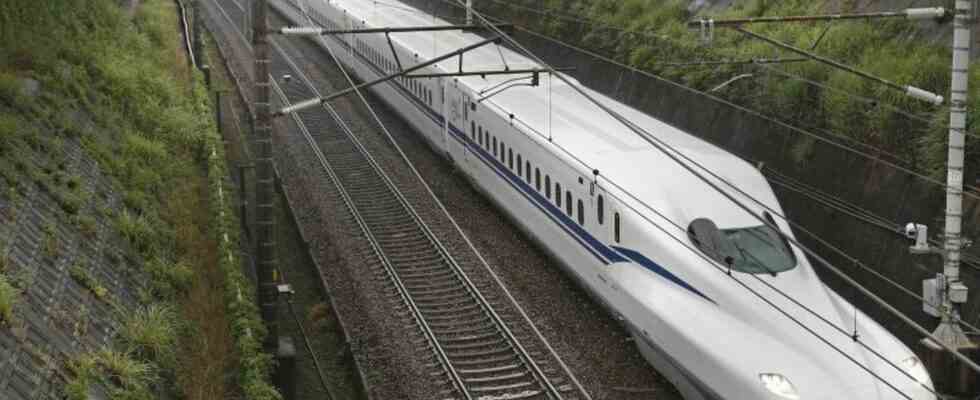Japan
Wage deduction due to a minute’s delay: train driver takes legal action and starts discussion about working conditions
The Shinkansen bullet train is the pride of the nation in Japan. There are almost never delays in the island state.
© kyodo / DPA
In Japan, a train driver arrived at his destination a minute late. The equivalent of 32 cents should be deducted from his wages. The man is now suing – and in doing so is questioning the principles of Japanese work culture.
In Germany, Deutsche Bahn trains are only considered late after the sixth minute. In Japan, however, the clocks tick a bit differently – above all: more precisely. Japanese trains are legendary for their punctuality, but when something goes wrong, a whole world shakes.
Japan: Train driver sues for wage deduction
A delay of one minute was not only incredibly nerve-wracking for a Japanese train driver. His employer West Japan Railway Company (JR West) even punished the man with a wage deduction of 43 yen. That’s the equivalent of 32 cents. But instead of tacitly accepting the pay cut, the train driver went to court – causing a stir in a country where it is part of the work culture that overtime is often not paid and employees take their vacation days when they are ill. The verdict in the curious trial is expected on April 19.
The train driver, whose name has not been released by the country’s media, was scheduled to drive a discarded train into the depot that fateful morning on June 18, 2020 at Okayama Station in western Japan. According to the largest Japanese daily newspaper “Yomiuri Shimbun”, the man appeared at 6.48 a.m. at a platform where he was waiting for the empty train. But that was the wrong track. At 7:08 a.m. he noticed his mistake and ran to the neighboring track. As a result, the handover of the train between the two engine drivers was delayed by two minutes. As a result, the departure was delayed by one minute. He arrived at the depot at 7.20 a.m., also a minute late.
Employer justifies wage cut: “No work, no wage”
Employer JR West justifies the wage cut with its strict working principle: “no work, no pay”. The engine driver was not working during the mix-up. The company initially withheld 85 yen for the two-minute delay, but reduced the fine to a one-minute delay after the driver complained to the local labor department. The plaintiffs argued in court that the one-minute delay complained of was actually working time. In addition, the train driver’s mistake did not result in any interruption of the train schedules.
The train driver is now seeking in court the reduced 43 yen plus 13 yen in overtime pay and 2.2 million yen (16,300 euros) in damages for the mental anguish caused by his employer’s decision. The bizarre legal dispute not only highlights the legendary punctuality of the Japanese railways, but also Japan’s often exploitative working environment. On the Internet, the train driver received a lot of support for his lawsuit from compatriots. “So you can cut someone’s pay by a minute, but you can’t pay overtime in minute increments,” one wrote, according to the media.
Japan is still very particular about “imperial punctuality”.
Japan’s railways are without a doubt world class. The high-tech nation is rightly proud of the reliability of its clean trains. For Takeshi Hara, a professor at the Open University of Japan, the habit of strictly adhering to the timetable goes back to the special trains for the imperial couple. In the newspaper “Asahi Shimbun” he tells how the Emperor’s trip to Kyoto in 1928 was on schedule to the second.
Japan is still very particular about “imperial” punctuality. So does Japan’s bullet train, the Shinkansen, the pride of the nation. Except in the case of natural disasters such as earthquakes, delays are almost impossible. But if there are short delays of less than a minute, this leads to repeated apologies to the passengers. In 2017, a train operator felt compelled to apologize because a Tokyo suburban train had not left too late, but too early: by 20 seconds. Nobody had complained at all.


